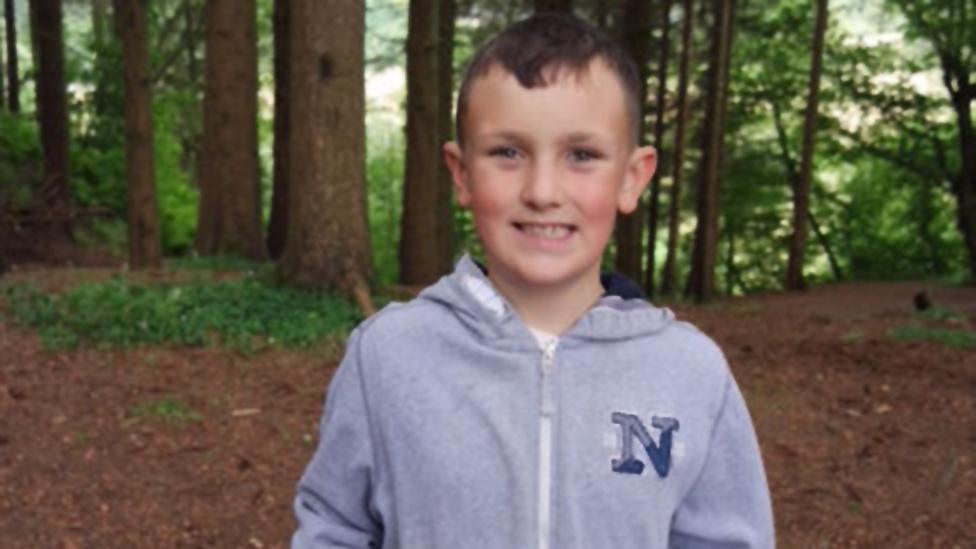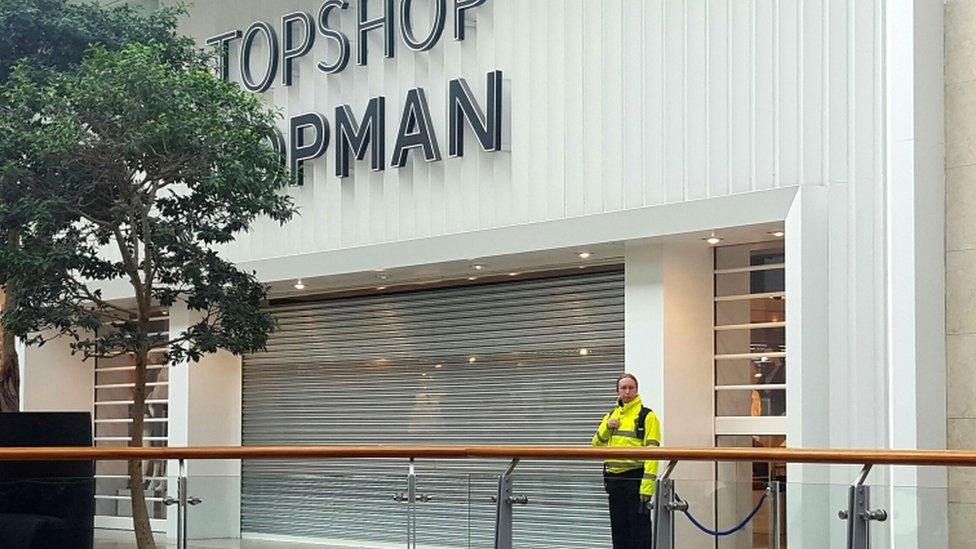Kaden Reddick Topshop death: 'No guidelines' on securing barriers
- Published

Kaden Reddick's mother said his death had "left a massive hole in our lives"
An inquest into the death of a boy fatally injured when a Topshop queue barrier fell on him heard there was no manufacturer guidance on how they should be secured to the floor.
Kaden Reddick, from Reading, died after the incident at the town's Oracle shopping centre in February 2017.
The inquest previously heard the 10-year-old was swinging on the structure.
The barrier maker said there were no rules on how they were attached to floors as they differed in each branch.
Barrier manufacturer David Renshaw of Realm Projects told jurors at Reading Town Hall his firm had made 88 barrier units - three of which had gone to the Reading Topshop store.
He said: "It was a totally fit for purpose component that did not fail in any way whatsoever."
He added the company's approved design drawings stated the units should be "fixed in place to the floor."
Manufacturer Realm Projects was not involved in the installation of the barriers - that role fell to the shop fitters at each store, the inquest heard.

Kaden was fatally injured at Topshop in the Oracle shopping centre in Reading
Former store procurement manager for Arcadia Group, which owns Topshop, Alan Prior explained the barrier had originally been designed in metal and would have been bolted to the floor.
But after the supplier went into liquidation in 2012, Realm Projects was hired to make similar barriers from medium density fibreboard (MDF).
The barriers, which doubled as a display unit, each weighed 110kg and would have been loaded with products encouraging "impulse" purchases as customers waited in line.
The inquest continues.
- Published2 March 2020
